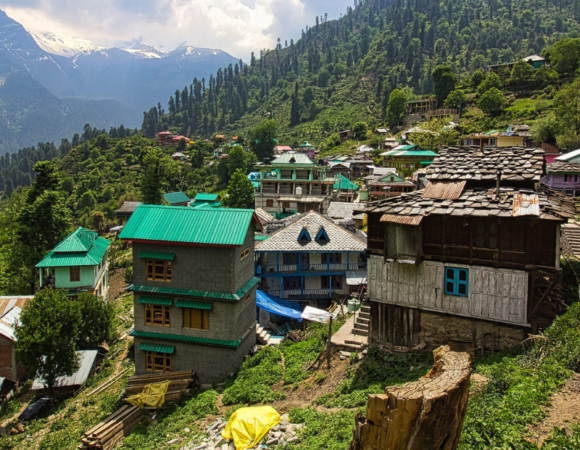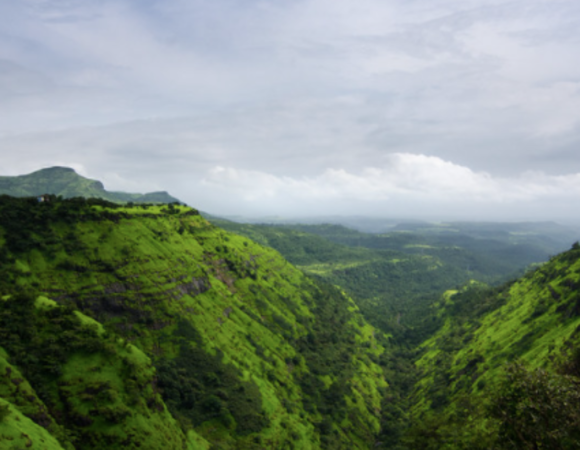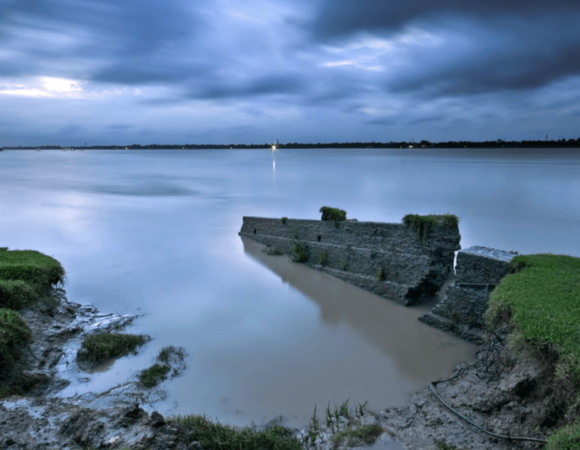5 Major Causes and Devastating Effects in Climate Change
Climate change is the gradual warming of the Earth due to human activities, especially the burning of fossil fuels like coal, oil, and gas. This releases harmful gases like carbon dioxide into the atmosphere, trapping heat and causing the planet to warm. The effects of climate change are widespread, including more extreme weather, rising sea levels, and damage to ecosystems. Understanding both the causes and consequences of climate change is crucial because it helps us take action to protect the planet and future generations.
Table of Contents
Toggle5 Major Causes of Climate Change

Burning of Fossil Fuels
The burning of fossil fuels, such as coal, oil, and natural gas for energy and transportation, is a major driver of climate change. These activities release large amounts of carbon dioxide (CO₂) and methane (CH₄) into the atmosphere, which trap heat and contribute to global warming. Fossil fuels account for over 75% of global greenhouse gas emissions, making them a central cause of the climate crisis.
Deforestation
Deforestation, driven by agriculture, logging, and urban expansion, significantly contributes to climate change by reducing the Earth’s capacity to absorb CO₂. Trees act as carbon sinks, and when forests are cleared, the stored carbon is released back into the atmosphere. Deforestation is responsible for approximately 10% of global greenhouse gas emissions, highlighting its crucial role in global warming.
Industrial and Agricultural Activities
Industrial processes and agricultural practices, including livestock farming and large-scale crop production, generate significant greenhouse gas emissions. Methane, emitted by livestock, and nitrous oxide, released from fertilizers, contribute to the warming effect. Agriculture alone is responsible for around 24% of global greenhouse gas emissions, underscoring its impact on climate change.
Waste Generation and Landfills
The decomposition of organic waste in landfills produces methane, a potent greenhouse gas. As urbanization increases, so does waste generation, exacerbating emissions and contributing to global warming. The waste sector plays a significant role in rising atmospheric temperatures, particularly in densely populated areas.
Overconsumption and Unsustainable Practices
Overconsumption, driven by mass production, fast fashion, and excessive resource extraction, exacerbates climate change. As demand for energy, raw materials, and goods increases, more greenhouse gases are emitted through deforestation, mining, and industrial activities. This unsustainable pattern accelerates environmental degradation, further contributing to the climate crisis.
5 Major Effects of Climate Change

Rising Global Temperatures
Global temperatures have risen significantly over the past century, with the planet experiencing more frequent and intense heatwaves, droughts, and shifts in weather patterns. These changes are a direct result of climate change, with the past eight years recorded as the hottest on record. The increased heat exacerbates the strain on natural resources and agricultural systems, leading to disruptions worldwide.
Melting Glaciers and Rising Sea Levels
Rising global temperatures are causing glaciers and ice sheets to melt at an accelerated rate. This melting contributes to the rising of sea levels, which poses a significant threat to coastal cities, islands, and low-lying regions. Since 1880, sea levels have risen by about 8 inches, a trend that is expected to continue, increasing the risk of flooding and displacement for millions of people globally.
Extreme Weather Events
As climate change intensifies, so does the frequency and severity of extreme weather events such as hurricanes, floods, and wildfires. These disasters destroy homes, infrastructure, and livelihoods, leaving lasting impacts on communities. In 2023 alone, the world witnessed record-breaking heatwaves and storms, underscoring the growing unpredictability and destruction of natural phenomena.
Loss of Biodiversity
The changing climate, along with habitat destruction and pollution, is driving many species to extinction. Disruptions in ecosystems and food chains threaten biodiversity, with one million species at risk of disappearing according to a UN report. This loss not only affects wildlife but also undermines ecosystem services that humans depend on, such as pollination and clean water.
Health Risks to Humans
Climate change poses significant risks to human health, from poor air quality to the spread of diseases. Increased heatwaves contribute to heat-related illnesses while rising temperatures and changing weather patterns expand the range of diseases like malaria and dengue. The World Health Organization estimates that climate change could result in an additional 250,000 deaths annually by 2050 due to these health impacts.
5 Disasters Due to Climate Change
European Heatwave (2022)

In 2022, Europe experienced one of its most intense heatwaves, breaking temperature records across countries like the UK, France, Spain, and Portugal. The UK recorded temperatures above 40°C for the first time. This extreme heat led to widespread wildfires, especially in Spain and France, and caused over 20,000 heat-related deaths across Europe. Climate change has significantly increased the frequency and intensity of such heat waves.
Pakistan Floods (2022)

In mid-2022, Pakistan faced catastrophic flooding caused by record-breaking monsoon rains and rapid glacier melting. One-third of the country was submerged, affecting 33 million people, destroying over 2 million homes, and killing more than 1,700 people. Scientists confirmed that climate change intensified the heavy rainfall and glacial melt, making the floods far more destructive.
Uttarakhand Glacial Burst (2021)

In February 2021, a part of the Nanda Devi glacier in Uttarakhand broke off, causing a massive flood in the Rishiganga and Dhauliganga rivers. The sudden surge of water destroyed two hydroelectric power projects claimed over 80 lives, and left more than 100 people missing. Scientists linked this disaster to rapid glacier melting driven by global warming and unpredictable weather patterns.
Australian Bushfires (2019–2020)

The catastrophic bushfires in Australia, known as the “Black Summer,” were one of the most devastating climate change-related disasters. Prolonged drought, record-breaking temperatures, and strong winds fueled fires across New South Wales and Victoria. Over 18 million hectares of land burned, destroying thousands of homes and killing nearly 3 billion animals, including mammals, birds, reptiles, and insects. Climate change intensified these conditions, making the fires more severe and widespread
Hurricane Dorian (2019, Bahamas)

Hurricane Dorian struck the Bahamas in 2019 as a Category 5 storm with winds reaching 295 km/h (185 mph). It became one of the strongest Atlantic hurricanes on record, causing widespread destruction in the Abaco Islands and Grand Bahama. The hurricane stalled over the islands for nearly two days, leading to catastrophic flooding and the displacement of thousands. Warmer ocean temperatures due to climate change contributed to Dorian’s strength and slow movement.
Chennai Water Crisis (2019)

In 2019, Chennai, one of India’s largest cities, experienced a severe water crisis due to failed monsoons, over-extraction of groundwater, and poor water management. All four major reservoirs dried up, leading to a citywide water shortage that affected over 10 million residents. Climate change contributed to irregular rainfall patterns and prolonged droughts, worsening the crisis and highlighting the vulnerability of urban water systems.
Why It Matters
Climate change has profound economic, social, and security implications. The damage to infrastructure, agricultural systems, and economies is immense, as extreme weather events and rising temperatures disrupt livelihoods and production. Vulnerable and low-income communities bear the brunt of these impacts, experiencing greater health risks, displacement, and loss of resources. Additionally, resource scarcity exacerbates conflicts and displacement, threatening global security and stability.
Solutions and Actions
There are several key actions we can take to mitigate climate change and reduce its impacts. Transitioning to renewable energy sources like solar, wind, and hydropower is essential for reducing greenhouse gas emissions and promoting sustainability. Embracing sustainable living practices—such as reducing waste, reusing products, recycling materials, and conserving energy—can lower our carbon footprint. Supporting climate-friendly policies and international agreements, such as the Paris Agreement, can accelerate global efforts to address climate change. Finally, community action plays a crucial role, whether through local cleanups, tree planting, or supporting conservation initiatives that protect natural resources and ecosystems.
Conclusion
Climate change is driven by human activities such as the burning of fossil fuels, deforestation, industrial processes, and overconsumption. These actions lead to rising global temperatures, melting glaciers, extreme weather events, loss of biodiversity, and significant health risks. The impacts are widespread and devastating, affecting economies, vulnerable communities, and global security.
Now is the time to take responsibility, both individually and collectively. By transitioning to renewable energy, embracing sustainable living, supporting policies for climate action, and participating in local initiatives, we can make a real difference. Every action counts. It’s time we work together to protect our planet for future generations.
References
United Nations. (n.d.). What is climate change? | United Nations.
World Health Organization: WHO. (2023, October 12). Climate change.
Climate change – NASA Science. (n.d.). https://science.nasa.gov/climate-change/
The climate crisis: the causes, the effects and the solutions. (2024, June 25).
Frequently Asked Questions (FAQs) on Climate Change: 5 Major Causes and Devastating Effects
What is climate change?
Climate change refers to long-term shifts in temperatures and weather patterns, primarily caused by human activities such as burning fossil fuels, deforestation, and industrial processes.
What are the main causes of climate change?
The major causes include:
Burning fossil fuels (coal, oil, and gas)
Deforestation
Industrial and agricultural activities
Waste generation and landfill emissions
Overconsumption of resources
How does deforestation contribute to climate change?
Trees absorb carbon dioxide (CO₂) from the atmosphere. When forests are cleared, this carbon is released back into the air, increasing greenhouse gas concentrations and contributing to global warming.
What are the most significant effects of climate change?
Some major effects include:
Rising global temperatures
Melting glaciers and rising sea levels
More frequent and severe natural disasters
Loss of biodiversity
Health risks like heat-related illnesses and respiratory problems
How does climate change affect weather patterns?
Climate change disrupts natural weather cycles, leading to extreme weather events such as stronger hurricanes, severe droughts, intense heat waves, and unpredictable rainfall.
Can climate change impact human health?
Yes, climate change increases health risks by worsening air quality, causing heat-related illnesses, and spreading diseases through insects and contaminated water sources.
Which countries are most affected by climate change?
Low-lying coastal nations, developing countries, and regions prone to droughts and floods are most vulnerable. Countries like Bangladesh, the Maldives, and parts of Africa face severe climate impacts.
How do rising sea levels threaten coastal areas?
Rising sea levels can flood coastal cities, erode shorelines, contaminate freshwater supplies, and displace millions of people living in vulnerable coastal regions.
What can individuals do to combat climate change?
Individuals can:
Use renewable energy sources
Reduce energy and water consumption
Support sustainable products and businesses
Reduce waste and recycle properly
Advocate for climate-friendly policies
Is it too late to stop climate change?
While we cannot completely reverse climate change, immediate and large-scale actions can slow its progression and minimize its impact. Every effort counts in reducing greenhouse gas emissions and protecting the planet.





[…] For more information on the causes and effects of climate change, visit Scoutripper’s blog. […]